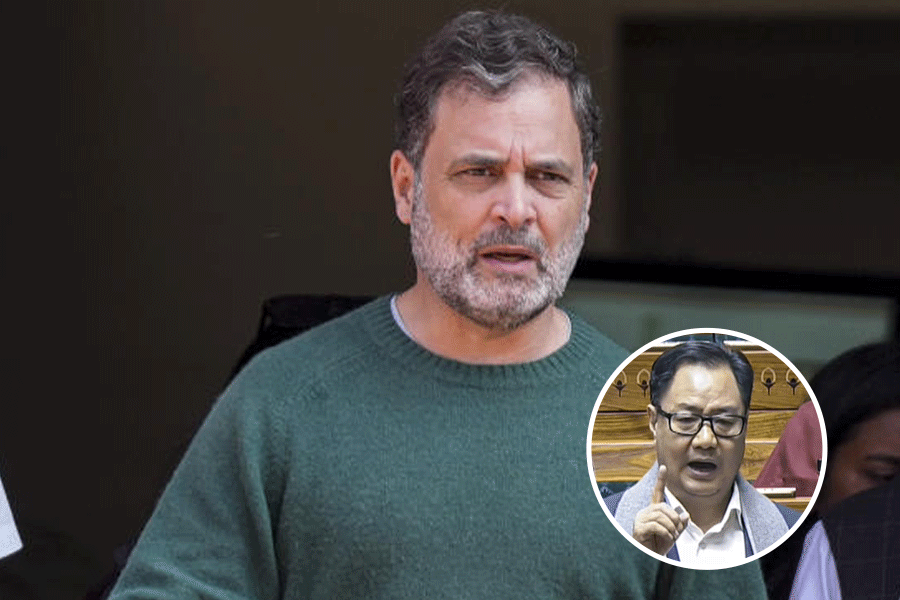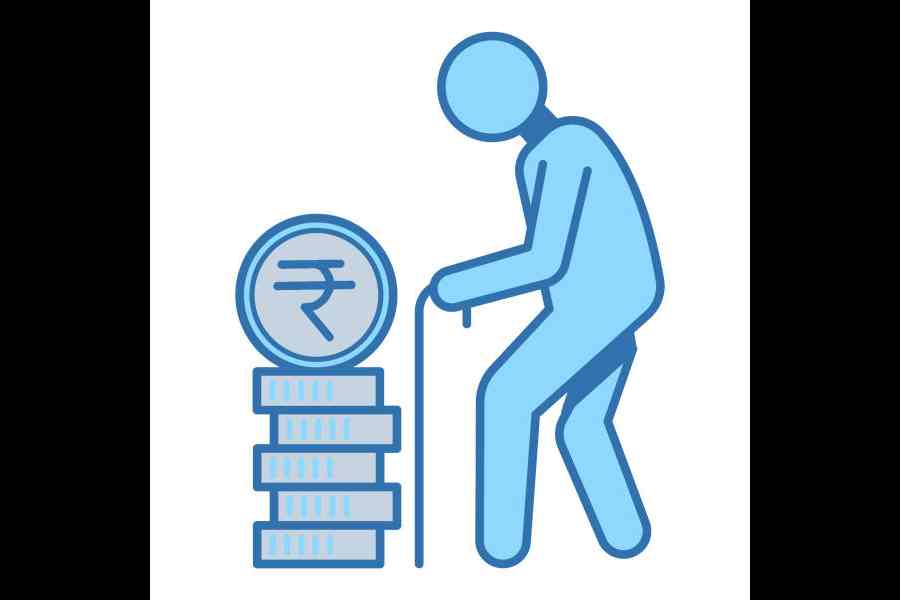 |
The ground floor of this white two-storey house close to the Golf Course in Noida, on the outskirts of Delhi, has become the media’s favourite hunting ground. I have an appointment, but have to wait outside till the clock strikes five — for only then will I be allowed inside. In five minutes, I am face-to-face with the man who’s the talk of the town.
“I am sorry — I slept for a while,” says Justice Jagdish Sharan Verma, the former Chief Justice of the Supreme Court of India. He is late by five minutes, and is humbly apologising for it. “This is the third interview that I am giving today,” he adds, as he settles down on a brown sofa in his living room.
Justice Verma has just presented a 630-page report titled “Amendments to Criminal Law” for reforming the criminal justice system on sexual offences. In the aftermath of the December 16 gang rape of a young woman in a moving bus in Delhi and the ensuing national outcry, the government set up a committee headed by him, with advocate Gopal Subramaniam and Justice Leila Seth, to look into the issue of violence against women. And within a month, the committee was ready with its report, which it presented on January 23.
The report has won accolades across the country. Earlier this week, Prime Minister Manmohan Singh also wrote a letter to Verma, assuring him that his government would be “prompt in pursuing the recommendations of the Committee.”
But when Verma had wanted to present the report to Singh, he was told he couldn’t do so. “We were informed that the home minister would like to receive the report in his office. But I refused to do so because in my capacity as a former Chief Justice of the Supreme Court I would deal only with the Prime Minister,” Verma says.
Later, a joint secretary in the home ministry was sent to Vigyan Bhawan to collect the report on the day of its release. Though security comes under the purview of the home ministry, minister Sushil Kumar Shinde did not contact the committee. Neither the Delhi police commissioner, Neeraj Kumar, who reports to Shinde, nor any of the state directors general of police, appeared before the committee during its public hearings.
“It clearly reflects their apathy,” Verma says.
He did get a list of suggestions from the Congress — but at midnight when an official sent by AICC general secretary Janardan Dwivedi knocked at his door. Later, of course, Congress president Sonia Gandhi apologised to him for this.
His report — which looks deeply into the law — has been commended for its thorough approach. His team of 15 young lawyers, academics and students worked tirelessly for a month to prepare the report. “The night before the day of its release, none of them slept,” he says. The committee received around 80,000 mails from various parts of the country, and from different walks of life and strata, suggesting effective police mechanisms, tougher laws and implementation of punishment for rapists.
Some were for the death penalty for rape — which the committee turned down, suggesting instead imprisonment for 20 years for rape and murder, and lifelong imprisonment for gang rape and murder. “Women’s groups were unanimously against the death penalty,” says Verma, whose panel also disapproved of chemical castration of rapists, calling it a “violation of human rights.”
The recent Ordinance on Criminal Laws, 2013 — approved by the Cabinet on Friday — suggested capital punishment in cases of aggravated sex crimes leading to death or a persistent vegetative state. But Verma is not among those who support capital punishment. “Studies worldwide have shown that the death penalty doesn’t decrease the number of rape cases,” he says.
The committee did not succumb to public pressure demanding lowering the age of juvenile perpetrators from 18. The demand had been gathering ground because the most brutal of the December 16 rapists was allegedly a juvenile. “We cannot change the law because of one incident,” he clarifies. “Also, even if the law is changed now, it will not be applicable in this juvenile’s case because he will be tried under the law that existed on the day the crime was committed.”
But Verma says that while he was overwhelmed by the huge public response to the December 16 incident, he was equally puzzled by the fact that these very people who were so agitated seldom acted to help the public in times of crisis. Few, for instance, came forward when the young woman and her companion were lying stripped and bleeding after they were thrown out of the bus. “They were lying on the road for 20 minutes. Many cars and autorickshaws passed by but nobody offered help. I hope people who came up with various suggestions on reforms would also be sensitive and help out others in crisis,” says Verma, who peppers his sentences with the Hindi word samjha — meaning, did you get it?
Dressed in a dark brown coat, a black sweater and brown trousers, Verma is 80, but looks younger and is certainly more energetic than most others of his age. He turned 80 on January 18, but there were no special celebrations for the big day as he was busy finalising the report. “I cut a cake which Gopal Subramaniam’s wife had ordered for me. It was the only five-minute break that we took from our work,” he says with a smile.
The work was all done with the help of Subramaniam’s office resources. All that the government did was provide them with a car which used to pick him and Justice Seth from their Noida homes and drop them at Subramaniam’s office in Jor Bagh. Earlier the committee sat in the government-run Vigyan Bhawan, but soon the members realised that it was better to work from Subramaniam’s office, since they were relying heavily on his staff and resources.
The report has raised eyebrows in some sections. The Army, for instance, hasn’t taken kindly to its recommendation of reviewing the Armed Forces Special Powers Act (AFSPA), which gives sweeping powers to the Army, including the right to shoot at sight.
Ironically, Verma headed a nine-member bench in 1997 that upheld the constitutional validity of this very act.
“If it is coming from me — I who once upheld its validity — it is because there are more and more complaints of increasing misuse of the act,” he explains.
The report also said that Army personnel committing a rape should be tried under the ordinary law of criminal justice. So far, the home ministry, in consultation with the defence ministry, has not accepted this recommendation of the committee. “I don’t think any part of the official duty of Army personnel allows them to commit sexual offences,” says the former chairman of the National Human Rights Commission. “It explains the mindset of the people who are against it,” he says, referring to the criticism that the section on the AFSPA has evoked.
But Verma also admits that not all is well with the legal community either. Gender insensitivity is rife in judicial circles too. In fact, the day Verma presented the report, an Uttar Pradesh judge was accused of molesting a teenager.
Curiously, Verma’s 1997 judgment dealing with sexual harassment of women at the workplace was never implemented in the offices of the judiciary.
He is also “embarrassed” about corruption in the judiciary. Instances of judges taking bribes from petitioners for pronouncing judgments in their favour make him hang his head in shame, he says. “Every time these incidents happen, I feel demeaned because even one corrupt judge is enough for the judiciary to lose its credibility,” says the retired judge who lives in a rented two-bedroom house.
The son of a railway officer, Verma explains that the law was never his first choice of career. Born in Satna in Madhya Pradesh, he earned a BSc degree and then went on to do his law degree from Allahabad University. “I wanted to join the Army but my mother objected to it. My second choice was the civil services, but my brother objected to that,” he says. He finally became a lawyer, which was his father’s choice, he adds. And Verma would have done his father proud. Widely seen as a man of great integrity, he has pronounced many landmark judgments — including the Nathdwara Temple case in 1989 on Dalits being allowed into the Rajasthan temple.
But his observations on the Mumbai High Court’s decision on an election petition stirred up a furore. While hearing this appeal in 1995, Verma interpreted “Hindutva” and “Hinduism” as “synonyms of Indianisation”. Many saw it as a validation of the resurgence of Hindutva in the country.
Justice Verma holds that the judgment was “misconstrued and misused” by many and quoted out of context. “But I am not responsible for the mental capacity of everyone else,” he says tersely. “Politics and religion are a deadly mix. Nobody admits it but everyone practises it here.”
As we reach the last leg of our one-hour long conversation, his cellphone rings. I have been told that he gets annoyed by calls on his cellphone. But his landline doesn’t stop ringing either. “My wife, Pushpa, gets irritated by these calls. And I ask her to imagine my plight,” he says.
Verma is now ready to call it a day. He wants leisure time — he’d like to read his favourite author, Amartya Sen, and spend time with his granddaughter, Preetika, who is on a vacation from the UK and was part of the team that worked for the committee.
Clearly, Verma has done his bit. Now it’s the people’s turn.










